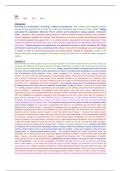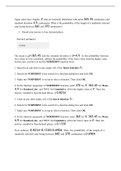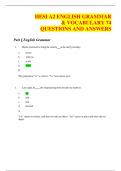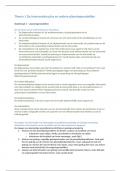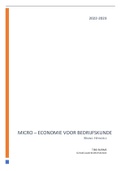Essay
Presentation of Survival in Frankenstein & The Handmaid's Tale
- Module
- Unit 2 - Prose
- Institution
- PEARSON (PEARSON)
In this Essay, I explore how surviving is a continuation of existing in difficult circumstances. Mary Shelley and Margaret Atwood powerfully demonstrate this through the trials and tribulations that unravel in their novels. Shelley advocates the catastrophic effects of Victor's actions, as his atte...
[Show more]
